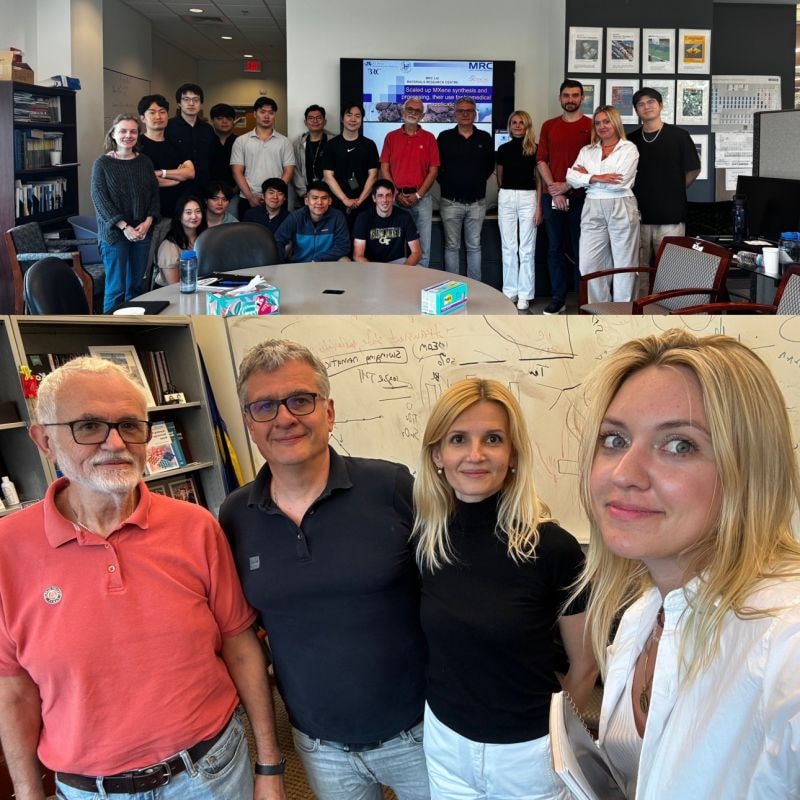Prof. Yury Gogotsi visited Qatar Foundation for Education, Science and Community Development, March 2013
Prof. Yury Gogotsi was invited to QF, Doha, Qatar,to discuss innovations and technologies, developing the latest scientific achievements and their commercializing. Also he visited Carnegie Mellon University in Qatar, that is a branch campus of Carnegie Mellon University, chartered in Pittsburgh, Pennsylvania, USA. In 2004, Qatar Foundation invited Carnegie Mellon to join Education City, a groundbreaking center for scholarship and research.
Qatar Foundation, located in Doha, Qatar, is an independent, private, non-profit, chartered organization founded in 1995 by decree of His Highness Sheikh Hamad Bin Khalifa Al-Thani, Amir of the State of Qatar, to support centers of excellence which develop people's abilities through investments in human capital, innovative technology, state of the art facilities and partnerships with elite organizations, thus raising the competency of people and the quality of life.
Qatar Foundation for Education, Science and Community Development (QF) aims to support Qatar on its journey from a carbon economy to a knowledge economy by unlocking human potential.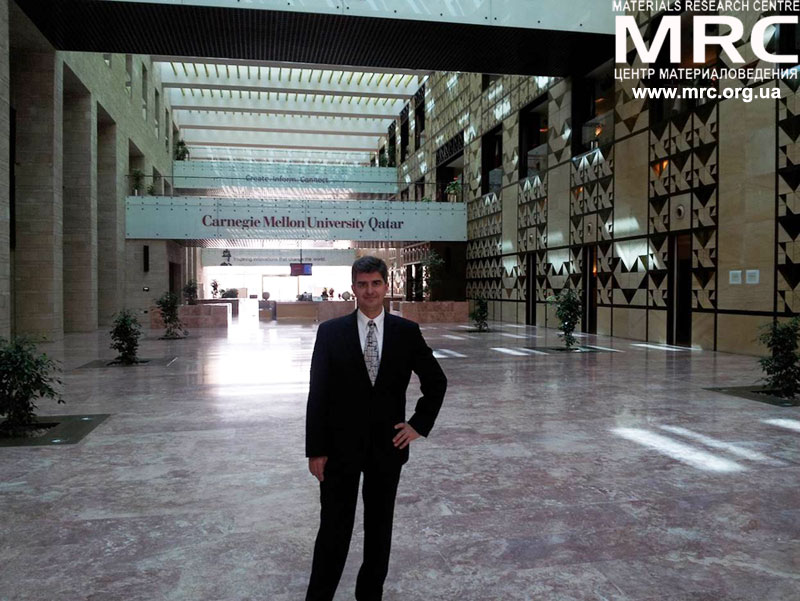
Qatari leaders have recognized the fallibility of oil and natural gases as a long-term economic model, especially for a smaller area such as Qatar. In the past years, large initiatives have been established to develop Qatar as an intellectual economy, with particular expertise in the field of common regional energy and industrial processes.
Qatar Foundation's main aim in this field is to help build Qatar's innovation and technology capacity by developing and commercializing solutions in key sciences. It is also developing a research strategy built on complementing Qatar-based research efforts with expertise from abroad, to build networks that provide home-grown solutions for Qatar and the region. A research division was established at Qatar Foundation in 2007 to manage developing a scientific community in Qatar. It has hosted several international conferences in the fields of biotechnology, nanotechnology, and stem cell research. Qatar National Vision 2030 outlines how the nation will use its vast revenues from hydrocarbon resources to transform itself into a modern knowledge-based economy. National Vision 2030 gave QF an exciting mandate: to be the ‘engine’ driving the development of Qatar’s people, with the headline aim of ‘Unlocking Human Potential’.
Education City, Qatar Foundation's flagship project is envisioned as a Center of Excellence in education and research that will help transform Qatar into a knowledge-based society.



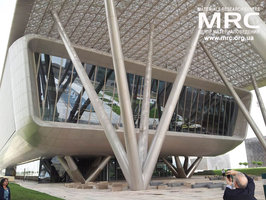


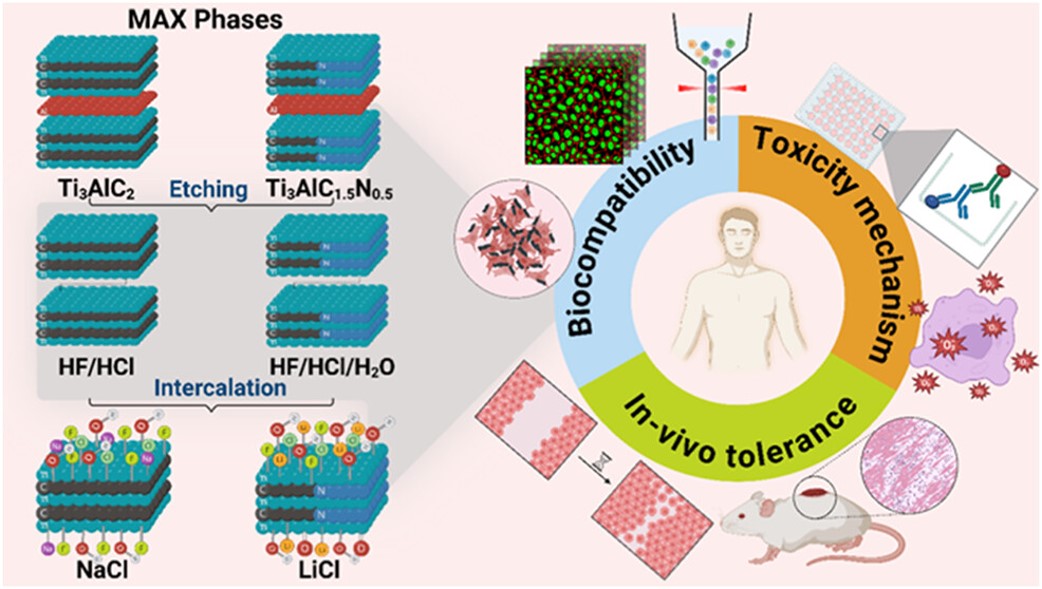 MXenes potential applications include sensors, wound healing materials, and drug delivery systems. A recent study explored how different synthesis methods affect the safety and performance of MXenes. By comparing etching conditions and intercalation strategies, researchers discovered that fine-tuning the surface chemistry of MXenes plays a crucial role in improving biocompatibility. These results provide practical guidelines for developing safer MXenes and bring the field one step closer to real biomedical applications.
MXenes potential applications include sensors, wound healing materials, and drug delivery systems. A recent study explored how different synthesis methods affect the safety and performance of MXenes. By comparing etching conditions and intercalation strategies, researchers discovered that fine-tuning the surface chemistry of MXenes plays a crucial role in improving biocompatibility. These results provide practical guidelines for developing safer MXenes and bring the field one step closer to real biomedical applications.
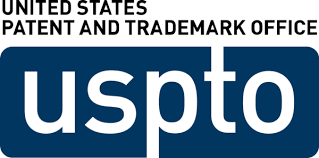 Exellent news, our joint patent application with Drexel University on highly porous MAX phase precursor for MXene synthesis published. Congratulations and thanks to all team involved!
Exellent news, our joint patent application with Drexel University on highly porous MAX phase precursor for MXene synthesis published. Congratulations and thanks to all team involved! Last Call! Have you submitted your abstract for IEEE NAP-2025 yet? Join us at the International Symposium on "The MXene Frontier: Transformative Nanomaterials Shaping the Future" – the largest MXene-focused conference in Europe this year! Final Submission Deadline: May 15, 2025. Don’t miss this exclusive opportunity to showcase your research and engage with world leaders in the MXene field!
Last Call! Have you submitted your abstract for IEEE NAP-2025 yet? Join us at the International Symposium on "The MXene Frontier: Transformative Nanomaterials Shaping the Future" – the largest MXene-focused conference in Europe this year! Final Submission Deadline: May 15, 2025. Don’t miss this exclusive opportunity to showcase your research and engage with world leaders in the MXene field!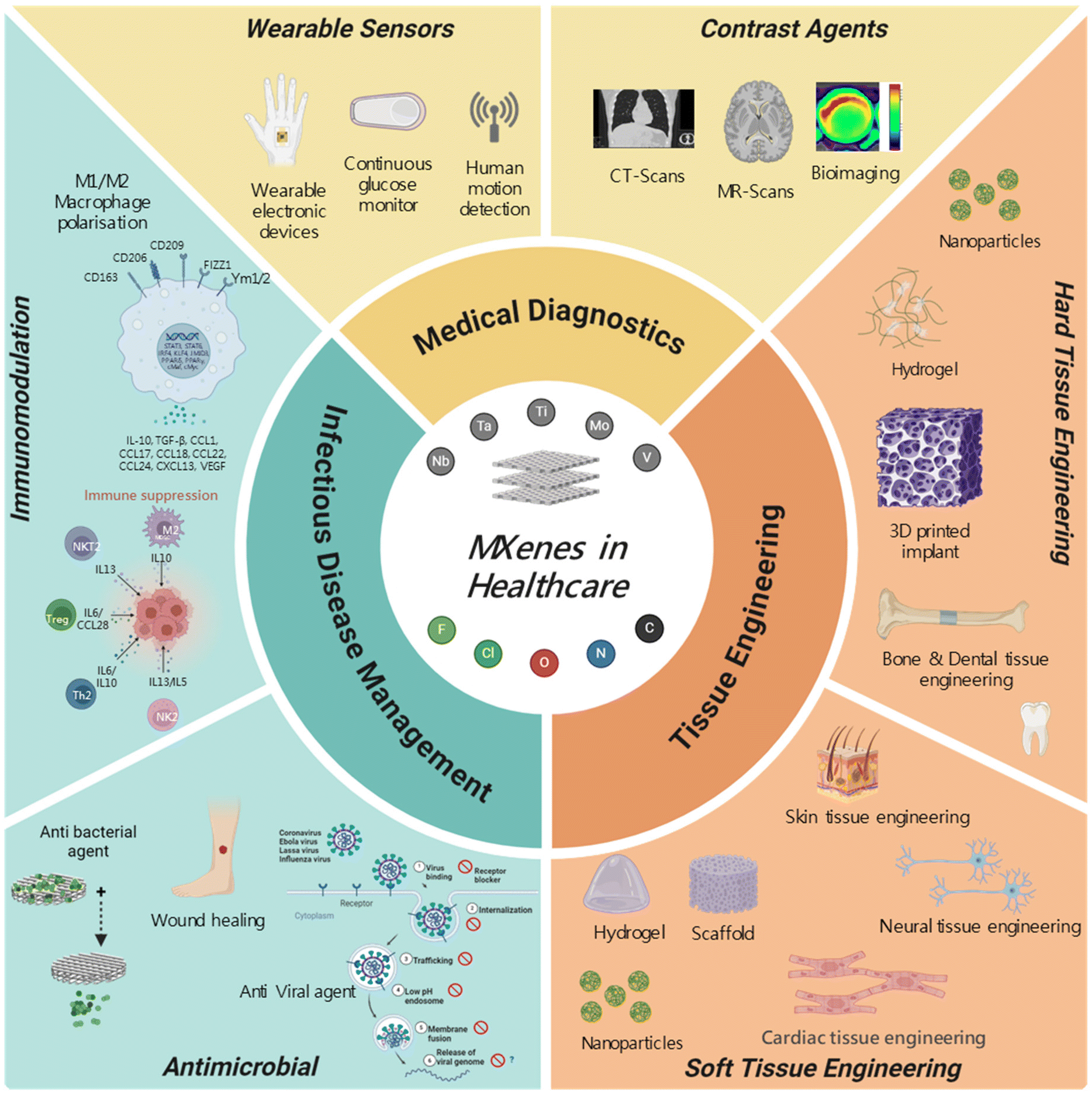 We are excited to announce the publication of latest review article on MXenes in Healthcare. This comprehensive review explores the groundbreaking role of MXenes—an emerging class of 2D materials—in revolutionizing the fields of medical diagnostics and therapeutics. Read the full article here: https://doi.org/10.1039/D4NR04853A.
We are excited to announce the publication of latest review article on MXenes in Healthcare. This comprehensive review explores the groundbreaking role of MXenes—an emerging class of 2D materials—in revolutionizing the fields of medical diagnostics and therapeutics. Read the full article here: https://doi.org/10.1039/D4NR04853A.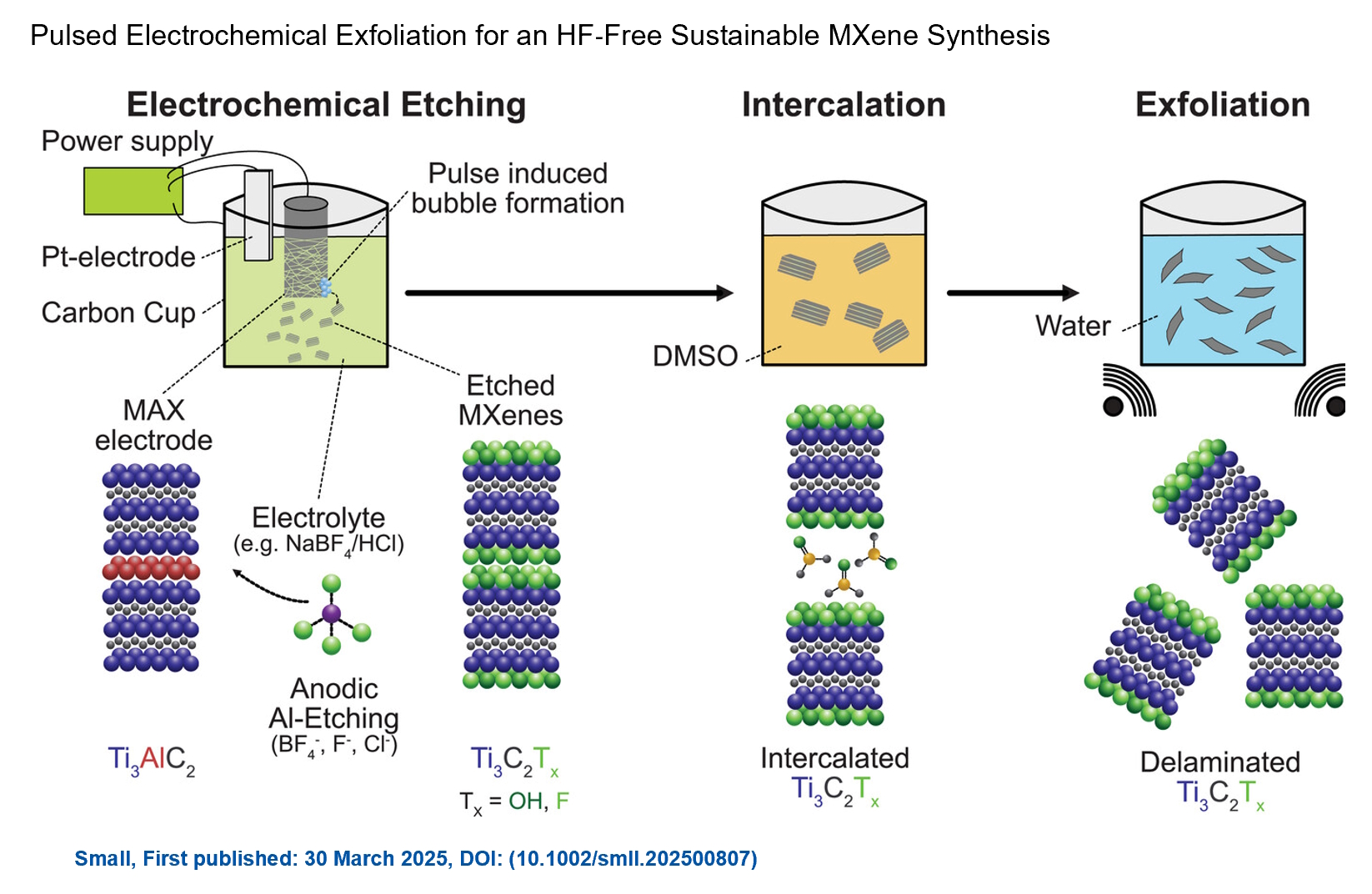 Congratulations and thank you to our collaborators from TU Wien and CEST for very interesting work and making it published! In this work, an upscalable electrochemical MXene synthesis is presented. Yields of up to 60% electrochemical MXene (EC-MXene) with no byproducts from a single exfoliation cycle are achieved.
Congratulations and thank you to our collaborators from TU Wien and CEST for very interesting work and making it published! In this work, an upscalable electrochemical MXene synthesis is presented. Yields of up to 60% electrochemical MXene (EC-MXene) with no byproducts from a single exfoliation cycle are achieved. Congratulations to all collaborators with this interesting joint work!
Congratulations to all collaborators with this interesting joint work!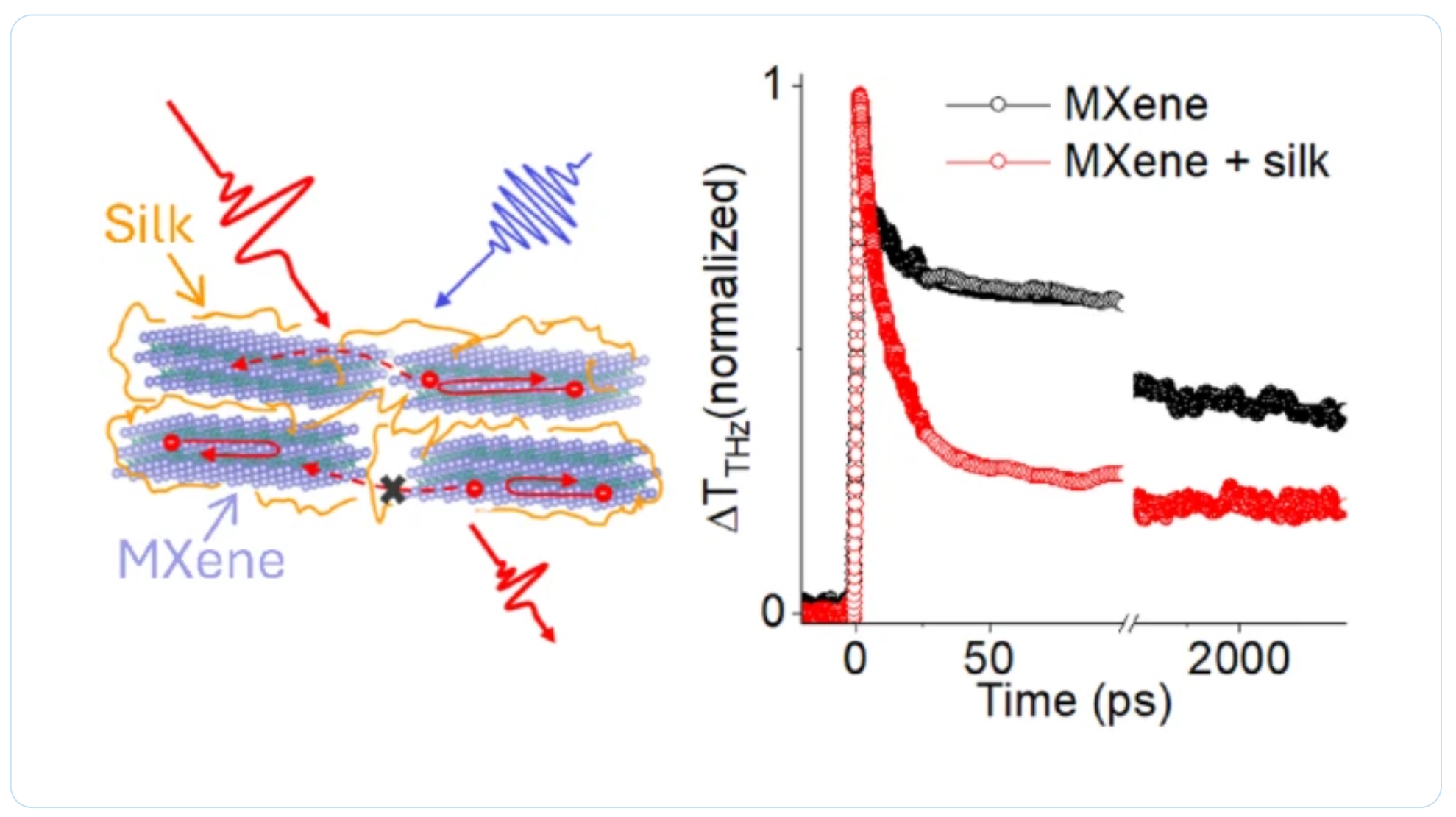 Thank you to our collaborators for the amazing joint work recently published in Graphene and 2D Nanomaterials about MXene–silk fibroin composite films aiming to develop materials with tunable electronic and thermal properties
Thank you to our collaborators for the amazing joint work recently published in Graphene and 2D Nanomaterials about MXene–silk fibroin composite films aiming to develop materials with tunable electronic and thermal properties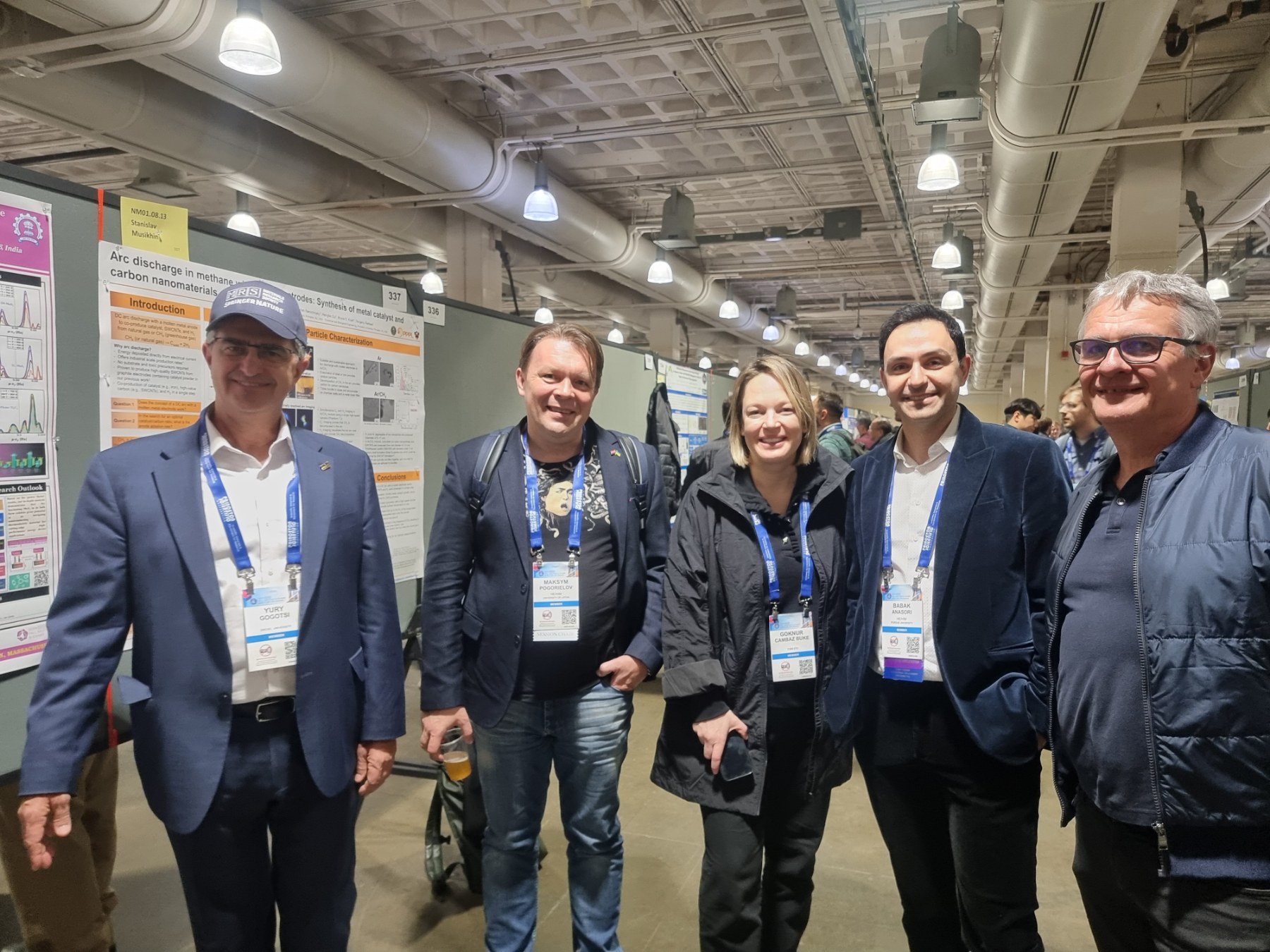 Dr. Oleksiy Gogotsi, director of MRC and Carbon-Ukraine, innovative companies that are among the leaders on the world MXene market, visited 2024 MRS Fall Meeting & Exhibit. together with Dr. Maksym Pogorielov, Head of Advanced Biomaterials and Biophysics Laboratory, University of Latvia.
Dr. Oleksiy Gogotsi, director of MRC and Carbon-Ukraine, innovative companies that are among the leaders on the world MXene market, visited 2024 MRS Fall Meeting & Exhibit. together with Dr. Maksym Pogorielov, Head of Advanced Biomaterials and Biophysics Laboratory, University of Latvia.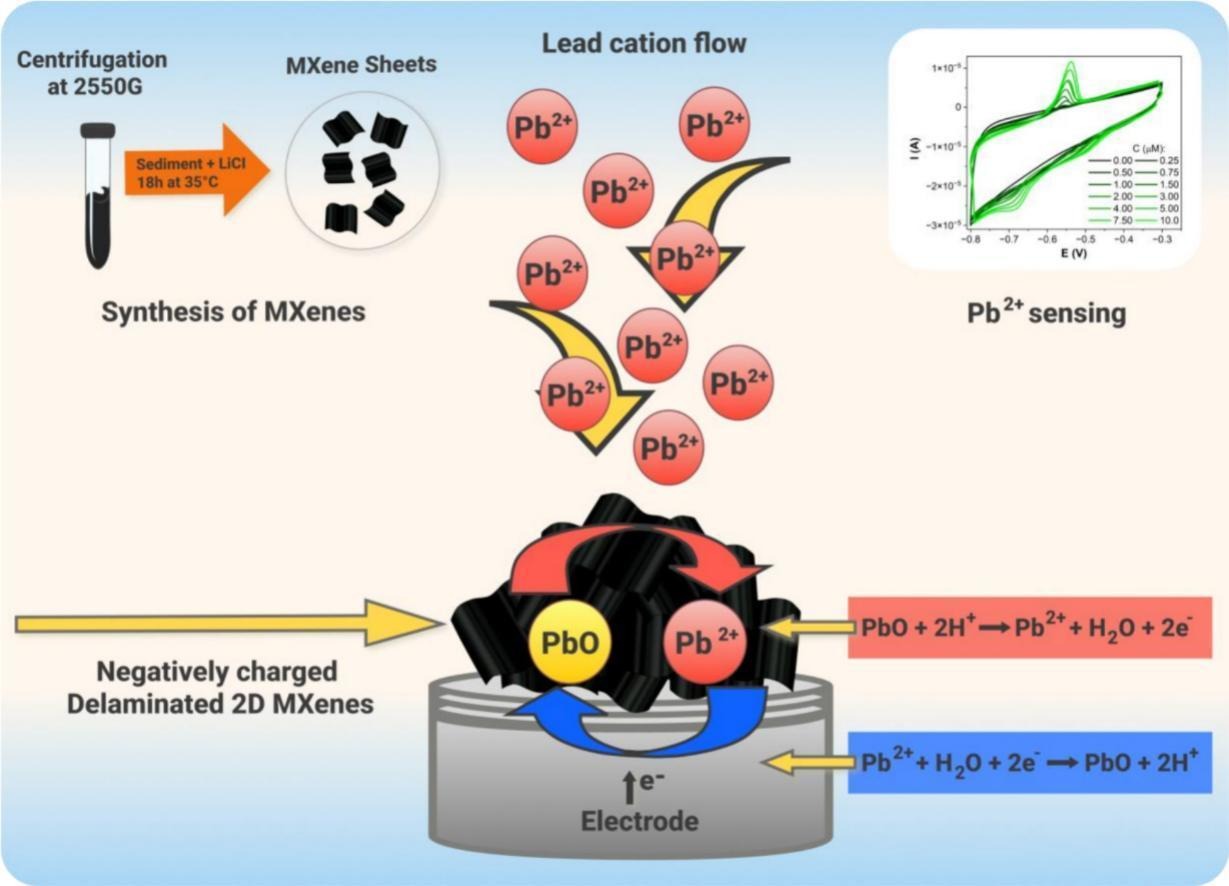
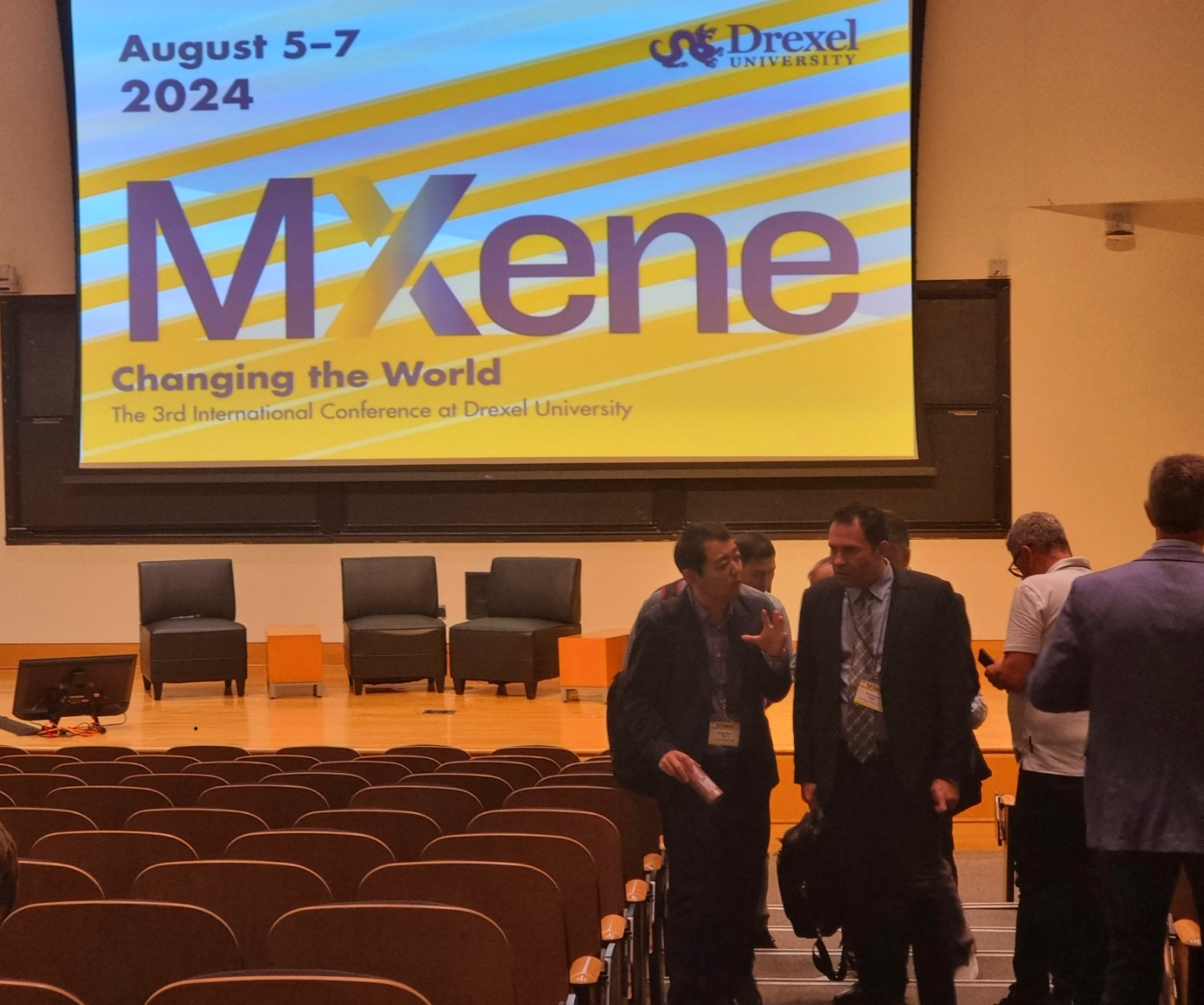 MRC and Carbon-Ukraine team visited the 3rd International MXene conference held at Drexel University on August 5-8, 2024. Conference brought together the best reserchers and leading experts on MXene field.
MRC and Carbon-Ukraine team visited the 3rd International MXene conference held at Drexel University on August 5-8, 2024. Conference brought together the best reserchers and leading experts on MXene field. 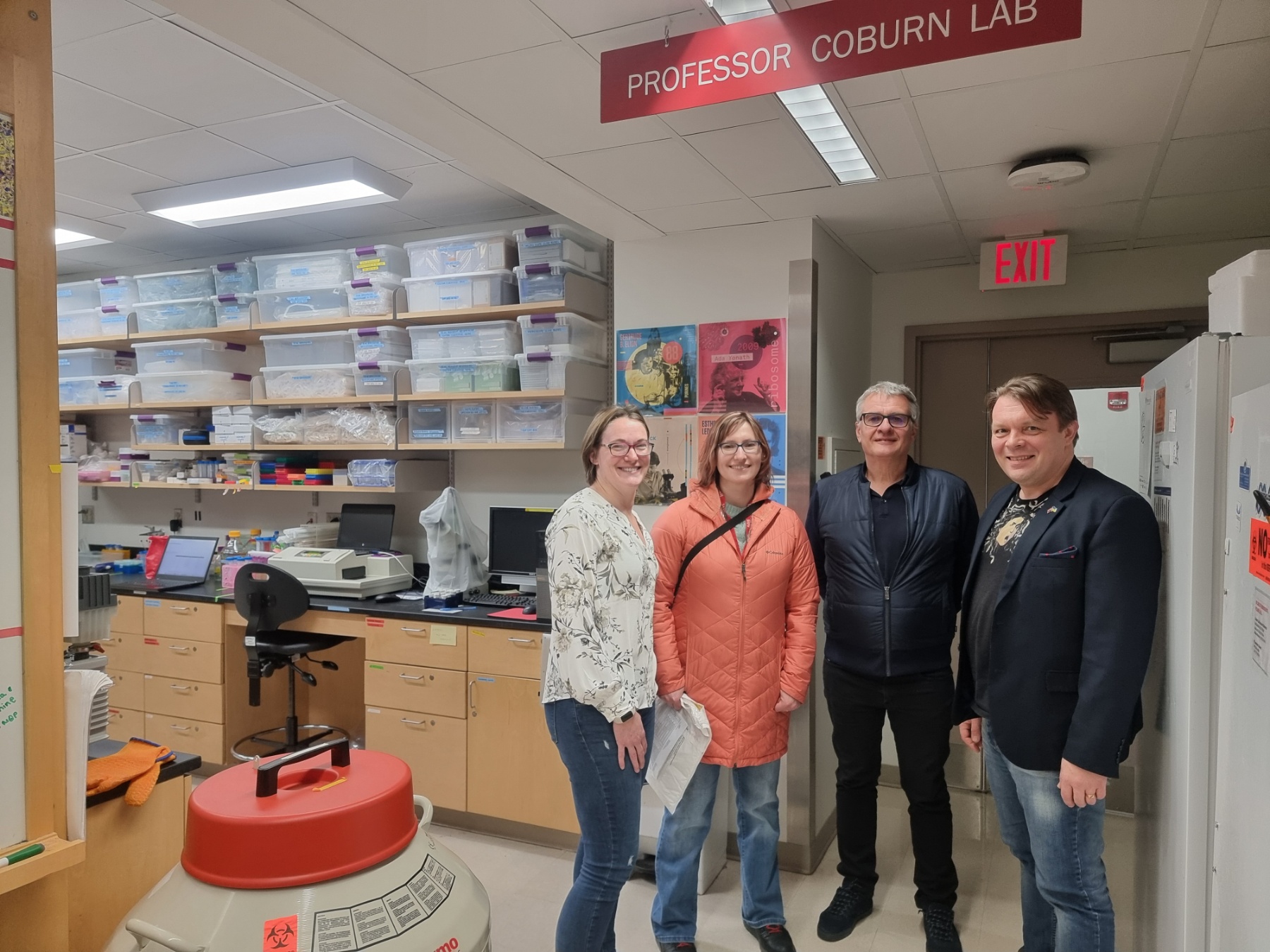
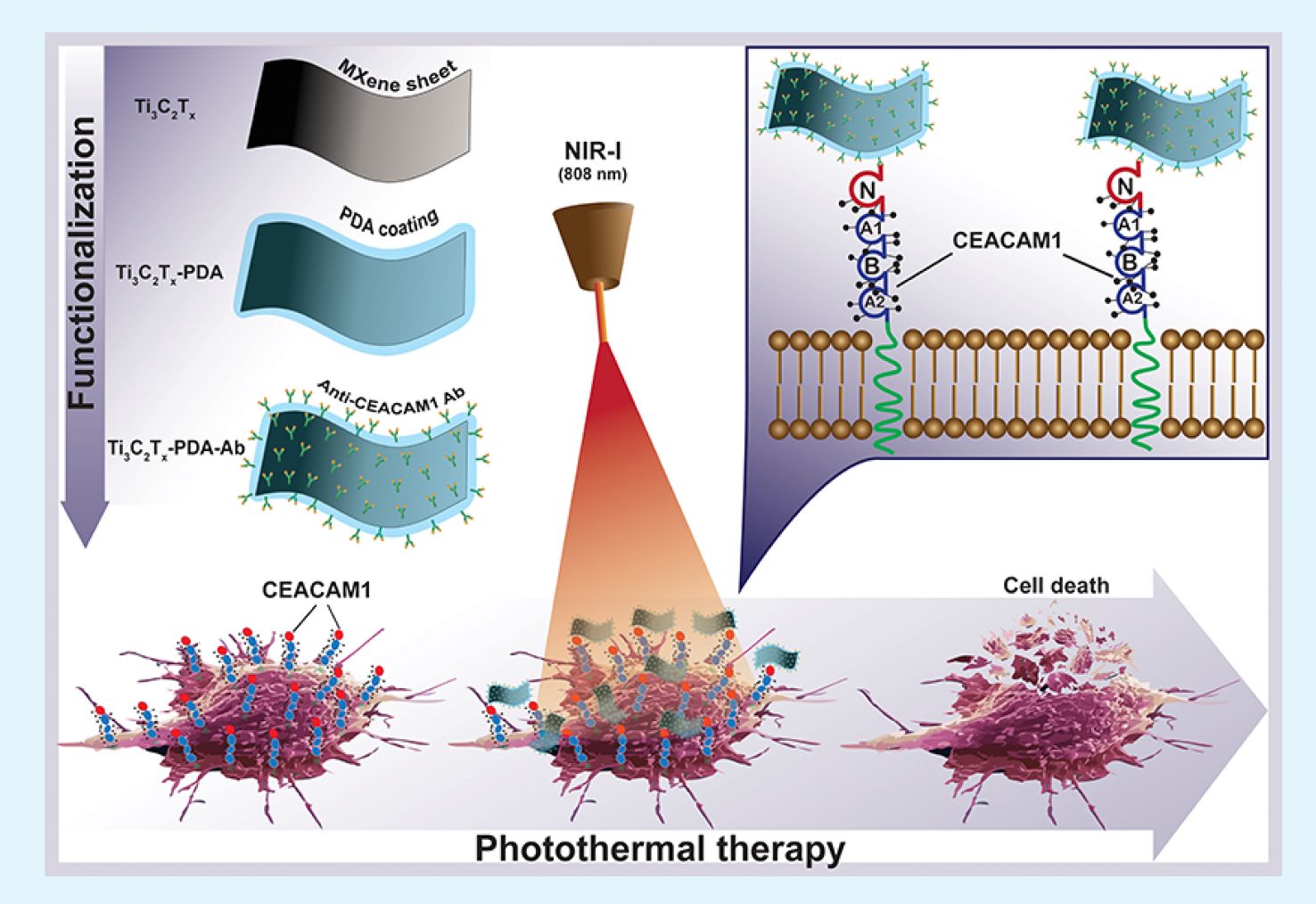 Together with colleagues from the University of Latvia, MRC/Carbone Ukraine, Adam Mickiewicz University, University Clinic Essen, and others, we have developed a novel concept involving the binding of antibodies to MXenes. In our research, we utilized anti-CEACAM1 antibodies to develop targeted photo-thermal therapy for melanoma (in vitro), paving the way for future in vivo studies and clinical trials. For the first time, we demonstrate the feasibility of delivering MXenes specifically targeted to melanoma cells, enabling the effective ablation of cancer cells under near-infrared (NIR) light. This new technique opens up vast potential for the application of MXenes in cancer treatment, diagnostics, drug delivery, and many other medical purposes.
Together with colleagues from the University of Latvia, MRC/Carbone Ukraine, Adam Mickiewicz University, University Clinic Essen, and others, we have developed a novel concept involving the binding of antibodies to MXenes. In our research, we utilized anti-CEACAM1 antibodies to develop targeted photo-thermal therapy for melanoma (in vitro), paving the way for future in vivo studies and clinical trials. For the first time, we demonstrate the feasibility of delivering MXenes specifically targeted to melanoma cells, enabling the effective ablation of cancer cells under near-infrared (NIR) light. This new technique opens up vast potential for the application of MXenes in cancer treatment, diagnostics, drug delivery, and many other medical purposes.